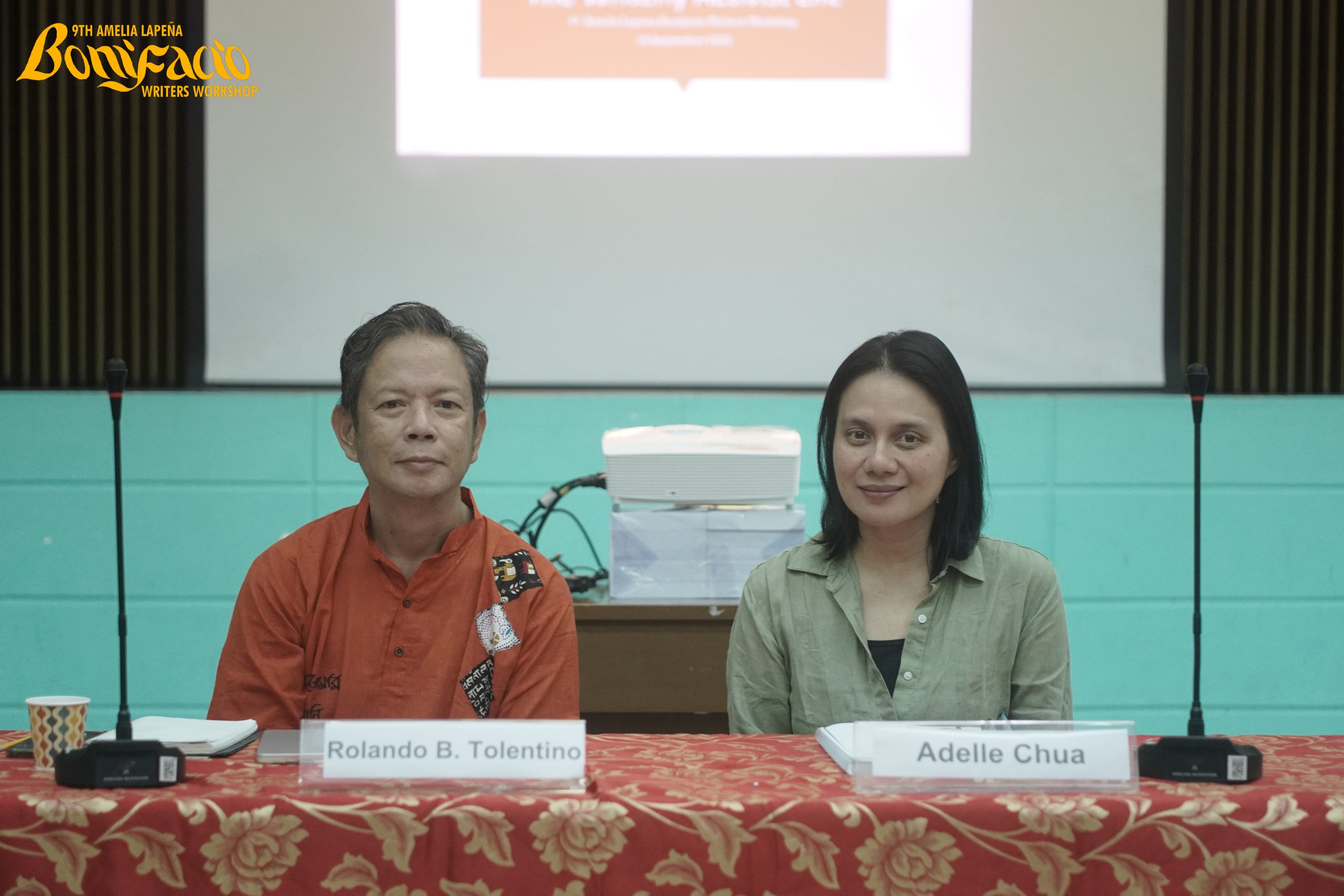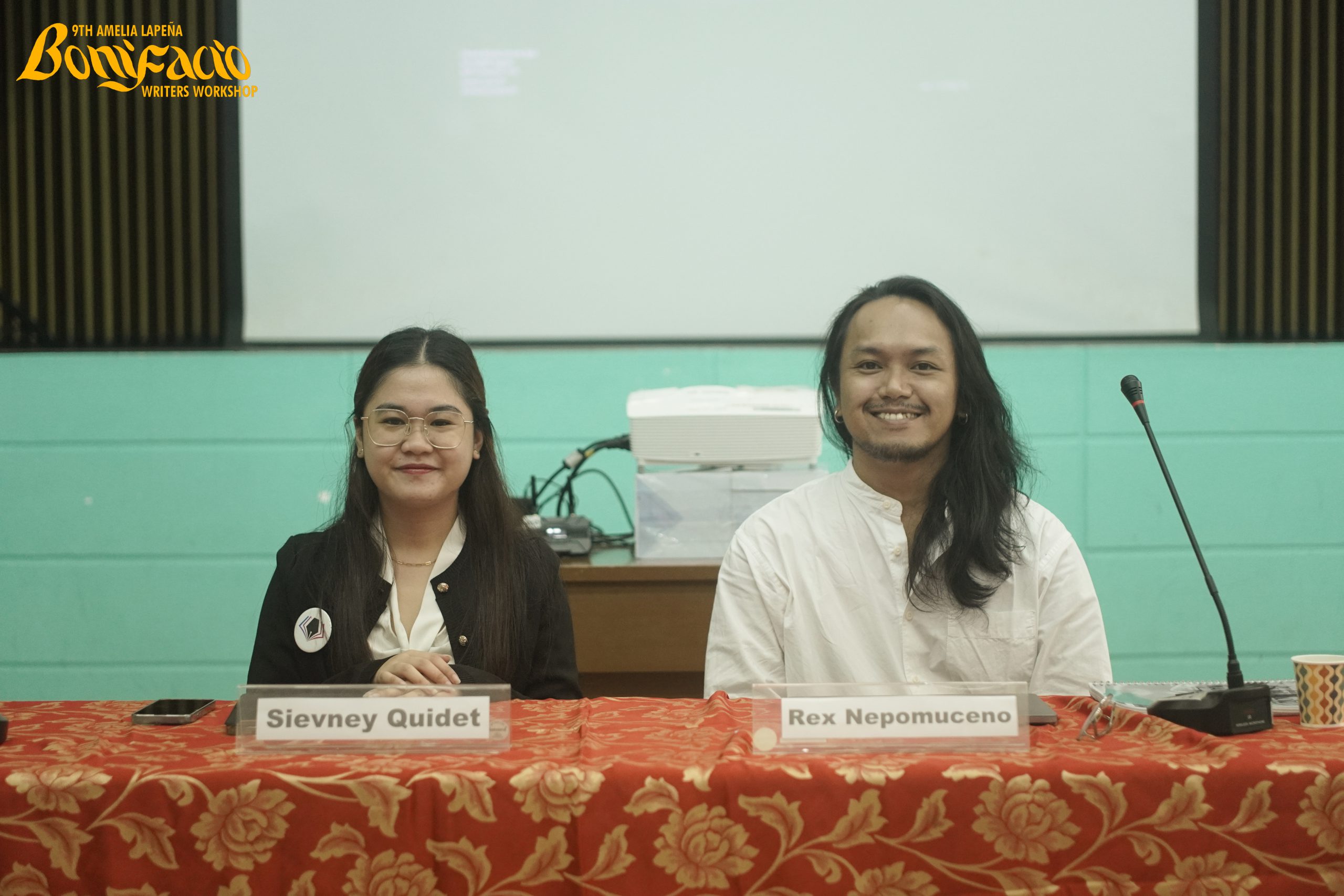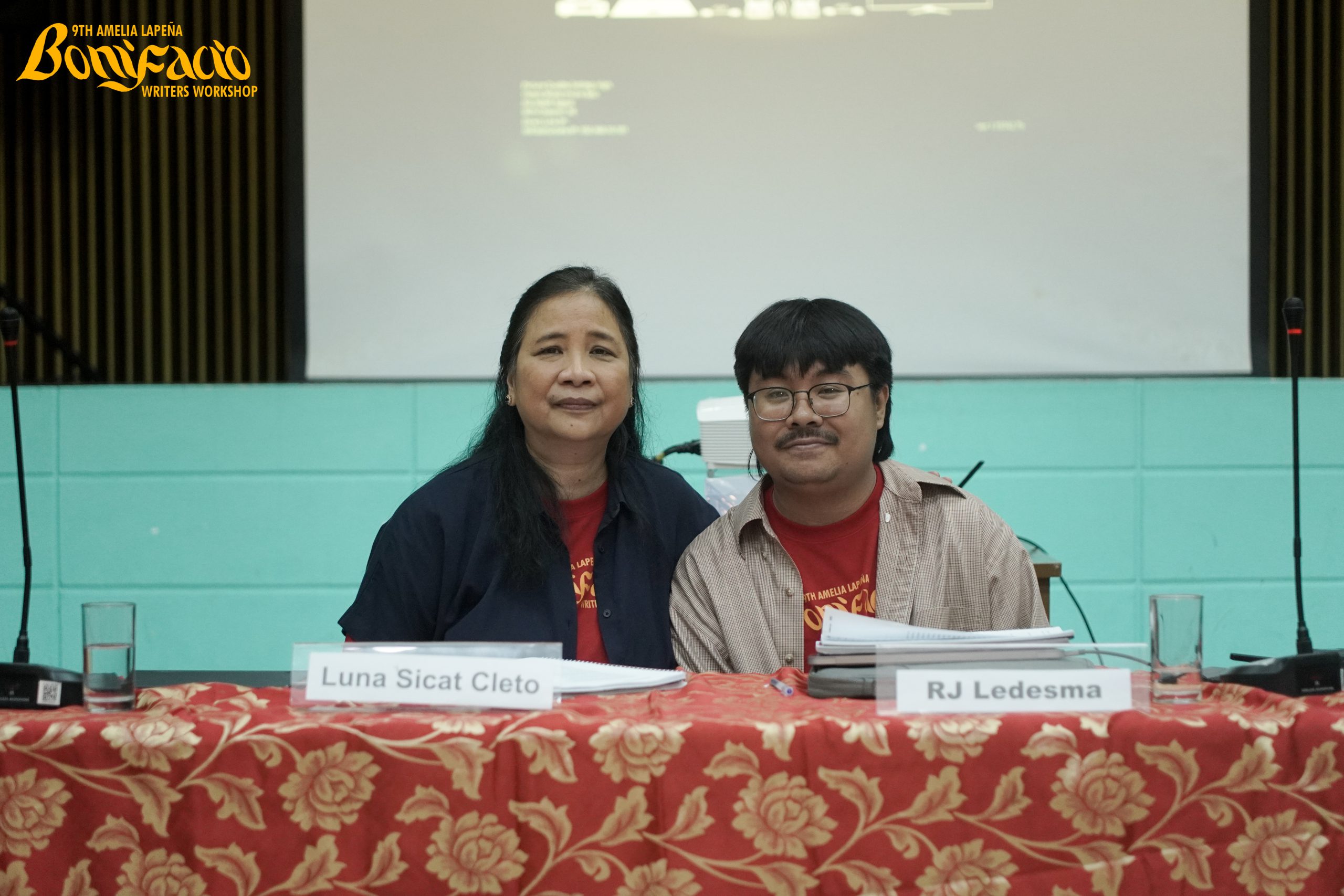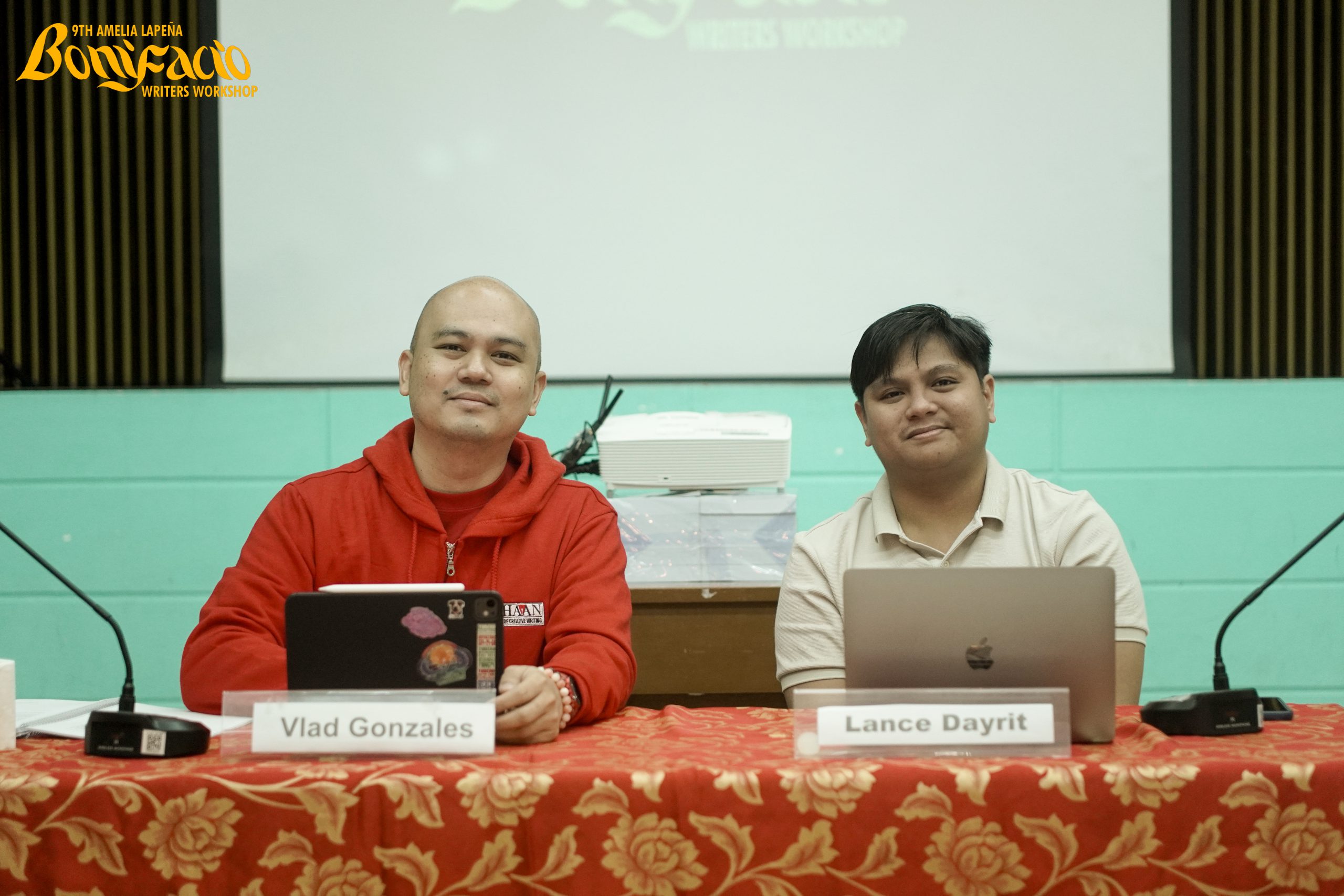PAPER CHANDELIERS
THERE ARE TWO readers I discourage from picking up this book: those who want to be happy and those who are family and relatives. Books are expensive, time spent reading is luxury, and I write sad stories. Readers who want light stuff should skip my works—traumas, dysfunctional families, depression and anxiety, midlife crisis, gout, teaching, unrequited love, cinema, trees, rivers, America, war, death, queerness. I do not live a spectacular life and there is nothing instagrammable in it. But I have wounds. These are same reasons why family and relatives should stay away. They might find themselves in my book, tell me that’s not how it happened, or discover that I am not the person they think I am. It will spare them the embarrassment or unnecessary heart attacks. The stories in my book were written from 2008 to 2024 but they encompass a lifetime of 38 years. I write for myself and I take pleasure reading my works. I experiment with forms, techniques, language, and themes. I don’t mind if they don’t speak to some readers, nor please some enlightened literati who advised me that my stories are better off not seeing the light of day. I lack the bourgeois sensibility to write only what is proper, or comfortable.
AT NINE I stumbled on “Moses, Moses” by Rogelio Sicat in a textbook that my aunt was using. At this point, I had already fallen into the habit of reading all textbooks issued by the government in my elementary school as well as the books issued to my aunt in her high school. I’d finish them usually within the first two months of the school year. We had no school library and we could not afford to buy books so I devoured anything printed that I could lay my hands on.
“Moses, Moses” is a one-act play about Regina, a mother and teacher who, despite being threatened by the mayor, pursues justice for her daughter, Aida, that was abducted and raped by the mayor’s son. The story uncoils perfectly: after Regina’s eldest son, Tony, exacts revenge for his sister by killing the perpetrator one night, he goes home and urges everyone that they pack up immediately and escape somewhere else. Regina attempts to take the gun from Tony but a group of policemen and the mayor arrive in Regina’s house to arrest Tony (and gun him down). The police start torturing Tony but Regina stops it by getting the gun and shooting her own son. That way, Regina’s daughter Aida achieves justice through Tony and Tony achieves justice through Regina who submits herself to prison in the end. Regina wins and loses at the same time.
The ending made me tremble with shock and awe. I read the play out loud, feeling the weight of emotions at every line. That must have been my first theater performance—inward, and all to myself. I seemed to understand all of it at a young age, including Tony’s philosophical and religious pronouncements about Mosaic justice: an eye for an eye, a tooth for a tooth; the Augustinian simile that understanding the Holy Trinity is like emptying the ocean of its waters using one’s bare hands. My small body erupted with negative power as I read the play and my eyes burned with rage. I felt cheated that such an injustice is possible, that power creates monsters. On many afternoons after that, during my two-kilometer walks from my school to our house, I would think about the play and weep by the roadside.
I am equally struck by the beauty of “Moses, Moses.” Not just by the play’s tight structure but by how Regina secures justice for Aida and Tony. I told myself I will write a play like this, write about these things. For twenty six years after that day I read “Moses, Moses,” I’ve been thinking how to thank Rogelio Sicat for making me want to be a writer. At 35, I met Luna, his gentle-souled daughter, in a book fair in Baguio.
Rogelio had been long gone but I finally took the courage to thank him through Luna while we were scanning books in Mt. Cloud Bookshop. It was embarrassing enough to be in the presence of a talented writer such as Luna but I was more embarrassed about having nothing to show for being a writer. And yet there I was thanking her father through her for making me one. I couldn’t tell Luna that I have turned my back from writing for more than half a decade. The easy excuse was that I’ve shifted to scholarship when I did graduate work in Oregon. Or broke my back, or sanity, earning real money to build my family a house when they got demolished after a long land dispute. Or life just took over. I didn’t know if I should go back to it, or how.
I CAME BACK to the Philippines, reconnected with old friends and mentors, but there was still no answer to the dread I was feeling. Nothing made meaning or sense and I was falling in a spiral. I couldn’t write.
I looked for the hard drive of my manuscripts. Most of them, unfinished. I knew why they could not be written down. I had not fully understood their truths so there was no compass to secure their direction. I was also no longer comfortable with the language I left behind. My language had shifted due to scholarly writing over the years. Which language do I use to redeem the old works?
But here is the bigger problem: I wrote nonfiction.
The I back then is no longer the same I now. I can establish an old persona faithful to their context but it would also mean confronting the truth of that experience within that isolated time. And would I really be able to fool my present self that such truth I’d be working on has no relation to and is not contingent on the truths I believe now? The persona shape-shifts depending on the vantage point of time and space, as in a parallax.
When I reinstated in my university during the pandemic, I took home with me an old cardboard box from the office thinking I’d find teaching materials that could be useful. What I found was an old issue of a paper I edited in high school mixed with thank you cards from students. I must have liked this issue a lot. In the literary section was an essay by SP Lopez, which we printed without permission. My high school self insisted in including it there: I had read the essay from a high school textbook left by a passenger in my father’s motorela when I was eleven. The short essay called “Following the Gleam” talks about a winged-creature who flew against the wind. A mote got into their eye and the wind whirled them into a pool. The narrator approached the wounded creature and realized that they were his soul. Against the setting sun, he walked with the creature to a temple with tall spires where they could heal. As a teenager, I had never felt so beautifully sad before I read that essay. I discovered for the first time that something deeply beautiful can cause a reader so much pain. I said I want to write like this, write about these things. I read the essay again, at an age when I had known with great depths what it means to lose one’s wings, lick one’s wounds, discover how the heart depletes after many episodes of breaking.
As I read, I saw my eleven-year old self in love with writing: me growing up reading “There’s the Rub” by Conrado de Quiros, a column that started in 1987, the year I was born. I’d read the back issues of the Inquirer which Ma used to buy in kilos from the public market in Cogon. Ma made these papers into baskets. My task was to cut the papers into columns and roll them with glue around a stick. But before I’d cut them, I’d read them first and copy the most beautiful lines to my notebook. The stick had to be removed before the glue dried up.
The rolled newspapers we then flattened with a glass bottle of Coke or Tanduay lapad. When we had enough flattened papers, Ma would weave them into baskets, then dye, dry, and varnish them. My early teenage years smelled of solvent and lacquer—not bad elixirs for someone already high with words. While waiting for the baskets to dry, I asked Ma what course she would have taken if she had the chance to go to college. “Accountancy.” And then she’d go back to preparing the fake flowers, sorting them according to their colors. As the eldest child with ten siblings, Ma started working as a child farmer in Lantapan, Bukidnon at the age of eight. She topped her classes until high school while supporting herself with farm work and selling candies. She said she did not go to college to work in Malaybalay, in Valencia, in Surigao, in Davao, in Diwalwal—so she can feed, clothe, and send her brothers and sisters to school.
Ma assembled the small baskets with chains around the biggest basket in the center, filled the baskets with fake flowers, to make chandeliers. They were not as grand as the glass chandeliers I saw on tv, nor could they hold real candles. But looking at the products being wrapped in plastic and readied for delivery made me feel proud of Ma and myself. From there, I made a silent promise to protect that tight conviction that one must eat and live from hard and honest work. Shining and pretty in the sunlight, the chandeliers no longer looked like they were made of papers. No trace of words. Only beauty. Ma’s labor invisible. The work would break Ma’s back after many years, destroy her lungs, and blur her vision.
We sold out all the paper chandeliers but I secretly wished we’d keep the largest and most beautiful piece for the house someday—something we never did. This sorrow over our chandelier-deprived sala grew stronger when later I observed that carpenters often did not live in a beautiful house, fishermen did not keep the most prized catch, dressmakers did not wear fancy clothes, comedians did not live the happiest lives, farmers did not eat the best food.
Ma’s small business helped me finish elementary school. I said I want to write like Conrado de Quiros. I dreamed of writing a piece for Youngblood so we can be read side by side. It happened when I was twenty-one, dismayed by the occasion of such writing which was the bombing in Lanao del Norte in 2008 that virtually placed my university in Marawi hostage. I was happy seeing the byline but I also realized that my writing had always been necessitated by survival: dealing with hunger and poverty, living with a sick sister, understanding a drunk father and figuring out where he left his soul, growing impatient over my own difficult questions.
Many times I dreamed of not having had to write because it would mean that life had been better. I would have no need to escape from it or build a wall of words around me or daydream my growling stomach away. But then again, writing was a space of freedom that was entirely mine. Unlike the chandeliers we made, no amount of dye and lacquer could conceal my words. Writing won me money that covered lunches for me and my little brother for an entire month, enabled me to spend for our school projects, bought me great books, earned me scholarships, brought me to places in Asia and America.
I HAD MINDLESSLY crumpled the high school paper like I had wrung out all the memories from it. I smoothed it, put it back in the box, tried writing again. This time without the need to be good, nor finish, nor be enough. Just write and stop beating myself. Write because writing is first love, the way into the scheme of things, the space where I can execute some form of balance and beauty. Where ordinary lives of people like us can mean something.
When I stayed long enough, unafraid of the blank page, and patiently breathed with the words that were not yet there, some forms of mercy took place. Drip by muddy drip, the words flowed and I found myself writing steadily as I entered the new year of 2023. I was breathing well while writing and there was no need to grieve for the words I could lose for being slow or for the words that would not come. I took whatever was there. And thanked the universe for not turning its back on me.
Sometimes a nonfictionist falls into a belief that it is up to their ability to save old pieces of themselves in the past. It turns out, these pieces of the past are the ones that redeem our present self, show us the value of temporal difference by making us more aware of how our consciousness has expanded or contracted over time, and locate us within our ever-changing habitus. One of the small wonders I found is that if we wait long enough before we write about a memory, we may borrow a memory from the present to help shape the truth of that memory from the past. Both memories should have already occurred of course to make this possible. This might even be true for other genres, say flashback and flashforward in fiction or the uncoiling in drama or the synaptic leaps in poetry but these devices work because the temporal stretches are all already configured in the design of the piece. With nonfiction’s bias to concentrate within a specific space-time perimeter, and a clear issue to resolve, borrowing details that are out of its context seems like undoing the game’s design. The remedy lies in the subject-position of the persona and the distillation of experience by the author: we are all what happens to us and more but us as a character may not yet tap into this transcendence. This is why, in the hands of master writers, it’s always a pleasure witnessing that moment when a character enlarges into and merges with the persona—often made possible by dipping into the expanding wisdom of the author in a historical future.
Sometimes when I catch myself writing for myself only and indulging in such remote thoughts about writing, I feel guilty. Aestheticizing life and making literature out of it seems exploitative, narcissistic, autophagus. The literary tradition which shaped me to become a writer carry a strong social conscience—Sicat, Lopez, de Quiros. And there are infinitely many ills and problems of the society that writers need to address, deep spiritual troubles of humanity that need to undergird a writer’s work. But I will write about them another time knowing that though the writer may dissociate from themes that challenge hegemonies and superstructures, their body and material conditions are inseparable from formations of and negotiations with power. These external forces assault writers everyday, threaten our inner life, erode our individuality, dehumanize us through unjust labor until we become bone-dry. Without wealth, the poor pay with their lives. Until now, I am still making up for my parents’ lost years—inching my way back to decades of abjection, hoping to buy back the hopes that my father sold or surrendered as a young man, hoping to find the small girl who was gleaning while doing arithmetic or learning to read in the cornfields.
To reclaim our inner voice is the first act of resistance. For now, it is enough to acknowledge that writing has taught me a path towards justice—the path of restoration and forgiveness. Picking up one’s manuscript is forgiveness. Writing again is forgiveness. Writers must forgive themselves over and over again, tirelessly, as writers, as persons. Forgive the world over and over again so that we can continue to live in it, find a home in it, gather strength inward, and finally, create our own clearing.

ABOUT THE AUTHOR
Elio Garcia is a professor and scholar of film and cultural studies. He holds a PhD from the University of Oregon where he taught media aesthetics and history of the motion picture. He writes fiction, nonfiction, and drama.






